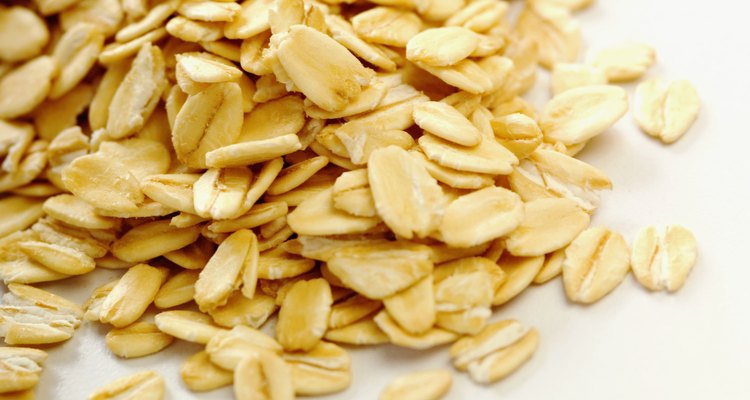
Quick cooking oats and rolled oats have distinct differences, but you may substitute one for the other in most baked goods. Quick cooking oats have been processed more than rolled oats, making them slightly softer and more able to absorb liquid. Although the quick version offers slightly less fiber than rolled oats, all other nutrients remain the same. In the end, both types impart a chewy, slightly nutty flavor to your favorite baked treats.
Roll, Roll, Roll Your Oat
Oats come from a plant that grows plentifully in the United States and other countries that get ample rainfall. The unprocessed groat looks like a grain of rice. Steel cut oats—also called Irish or Scottish oats—are minimally processed by cutting the grain once to allow water to penetrate. Rolled oats are mashed under huge rollers to flatten the grain, then steamed and toasted for a softer and faster-cooking product. Quick-cooking oats are rolled and steamed again to flatten them and shorten the cooking time even further.
Cutting the Cooking Time
The biggest difference between steel-cut, rolled and quick-cooking oats is the amount of time it takes to soften the grain to make it palatable. Steel-cut oats rarely get as soft and mushy as quick-cooking oats, but they become chewy after boiling for about 20 minutes. Rolled oats cook in about half the time, and quick-cooking oats cook in one to two minutes.
Mix Up the Texture
In recipes that call for oats, rolled oats provide a chewy, nutty texture and flavor, while quick-cooking oats supply a softer, moister finished product. Both can be used interchangeably in many recipes, and you may even substitute oats for up to one-third of the flour in most baked goods. Use steel cut oats if you want a baked good with a crunchy, nut-like texture. Avoid prepackaged instant oatmeal as it often contains added sugar and flavorings, and the finer texture absorbs too much liquid from the batter.
Pat Yourself on the Back
When you cook with oats, you increase the amount of beneficial fiber and other nutrients in baked goods. All forms of oats contain a soluble fiber called beta glucan that helps lower cholesterol. Additionally, oats are fat- and gluten-free, and they are an excellent source of magnesium, phosphorus and potassium.
Related Articles
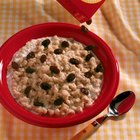
How Many Calories Do Oats Contain?
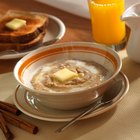
How to Microwave Steel Cut Oats
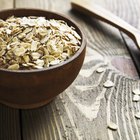
Proteins and Fiber in Oats

Can I Substitute Rolled Oats for Flour ...

How to Make Quaker Oatmeal
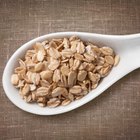
Does Instant Oatmeal Have Less Fiber ...

Purpose of Rolled Oats in Baking
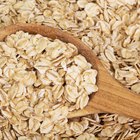
Can You Use Oatmeal to Remove ...
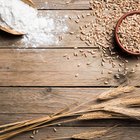
Nutritional Information for Rolled ...
Old Fashioned Oats in Place of ...
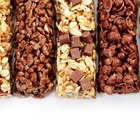
What Is the Difference Between Rolled ...
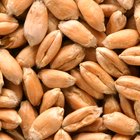
How to Cook Soft Wheat Berries

How to Cook Steel-Cut Oats in a Slow ...

How to Cook Oat Groats in a Crock Pot
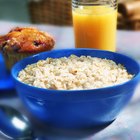
How to Cook Hot Cereal With Oat Bran in ...

What Is White Oat?
Can You Replace Bulgur With Barley?

Can I Use Oatmeal for Rolled Oats in ...
Can You Eat Bulgur Like Oatmeal?
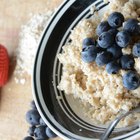
How to Prepare Quaker Oatmeal
References
Writer Bio
When not working in her family-owned food and bar business, Viola Horne can almost always be found with a cookbook in one hand and a whisk in the other. Horne never tires of entertaining family and friends with both comfort food and unusual delicacies such as garlic cheese smashed potatoes and banana bacon pancakes.
Photo Credits
Medioimages/Photodisc/Photodisc/Getty Images